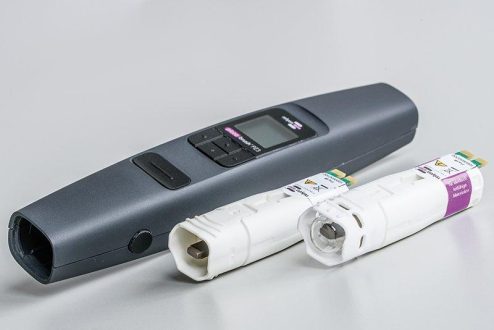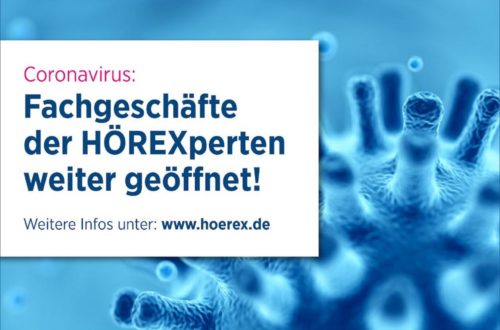
Digital therapy for autism patients
It is estimated that up to two percent of the global population may be affected by autism spectrum disorder (ASD). Many of these people have difficulty recognizing the social and emotional cues of others, which leaves them prone to social stress and isolation. Humboldt-Universität zu Berlin, the University of Freiburg Medical Center and six other partner universities in Germany recently launched the largest clinical study to date of adults with ASD. Focused on core social symptoms, it aims to help these people distinguish and understand emotions. ITK Engineering is involved as a technical development partner for the digital training tool EVA, an acronym for Emotionen Verstehen und Ausdrücken (understanding and expressing emotions).
Learning to distinguish emotions with app-based training
"This digital training program should help us to greatly improve the care situation for adults with autism. Currently, there are virtually no evidence-based therapeutic services on offer for this patient group," says Prof. Isabel Dziobek, who heads up the Clinical Psychology of Social Interaction work group at Humboldt-Universität zu Berlin. "The aim of the study is to learn to better understand emotions in their various facets. This is an important step towards navigating social encounters more effectively in day-to-day life. That, in turn, will lead to successful inclusion not only in social situations, but also in work structures, for example." Digital therapy options are an important supplement to individual and group therapies, particularly with the COVID-19 virus limiting opportunities for face-to-face contacts.
Professional actors portrayed 40 emotions such as joy, anger and enthusiasm by way of facial expressions, vocal inflections and brief skits depicting social interactions. Over the course of this study, 360 patients on the autism spectrum will train with this app and its video and audio clips to learn about and read these emotions. Researchers will then apply the principles of evidence-based medicine to compare the success of this digital therapy with group therapy results and demonstrate the effectiveness of the two approaches. Humboldt-Universität and the other partner universities in Germany are now conducting this study funded by the Deutsche Forschungsgemeinschaft (German Research Foundation.)
A user-friendly web app with many smart features
"Our role is to develop the training tool to turn an Android application into a flexible, web-based app," says Richard de Klerk, Head of R&D Healthcare at ITK Engineering. "This platform has to be as easy to use and as available as possible. We enhanced the design in several ways to this end." For example, the app now runs platform-independently and can render images depicting emotions on mobile devices as well as on large monitors.
Gamification features serve to motivate patients: The longer and more consistently users perform their weekly exercises, the faster they can win virtual trophies, move up in the rankings and access additional information. A dashboard enables therapists to track patients‘ progress and provides indications of which individuals need more assistance. ITK Engineering provides the infrastructure, application, and the results to Humboldt-Universität and operates the platform.
Driving and shaping the digitalization of medical engineering
The development of the training tool is based on the ITK Digital Health Microservices Platform with microservices that have been developed standards-compliant and reusable. These microservices enable ITK Engineering to help customers bring their medical products to market – quickly and successfully without long development cycles.
"Our contribution to this autism study is just one of our many activities in the digital health sector," says Dr. Alexander Huber, head of the Healthcare business unit at ITK Engineering. "We want to help medical device manufacturers, pharmaceutical companies, startups, hospitals and research institutes digitalize medical technology." The spectrum of services ranges from developing digital health applications (DiGA) and front- and back-ends to providing infrastructure and consulting on regulatory affairs, cybersecurity and data protection.
The company always puts people’s health first in all these endeavors. The same goes for the EVA training tool. It could help many people on the autism spectrum, who often have to wait more than a year for a suitable therapy slot. Any therapeutic method that helps them navigate the challenges of day-to-day life during this time is valuable.
ITK Engineering GmbH, founded in 1994 as an "engineering firm for technical cybernetics," is an internationally operating technology company in the software and systems engineering field. Thanks to its strong methodological expertise, ITK covers the entire spectrum – from embedded systems to cloud computing. ITK offers international customers from the automotive, rail technology, building technology, aerospace, medical technology, motorsport, and robotics sectors tailored consultancy and development services. ITK employs around 1,200 employees at the company headquarters in Rülzheim in Germany’s Rhine valley and at nine additional branches located across Germany. ITK is also represented in Austria, Spain, and Japan. Some 1,300 employees currently work for ITK’s development partners worldwide. ITK Engineering has been a wholly owned subsidiary of Robert Bosch GmbH since 2017. www.itk-engineering.de/en/
ITK Engineering GmbH
Im Speyerer Tal 6
76761 Ruelzheim
Telefon: +49 (7272) 77030
Telefax: +49 (7272) 7703100
http://www.itk-engineering.de
Telefon: +49 (89) 8208598-223
E-Mail: presse@itk-engineering.de
![]()




